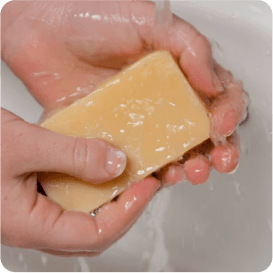
Differences Between Soft Water and Hard Water
Water is such an integral part of our daily lives that we often take it for granted. We drink it, cook with it, shower in it, wash our clothes and even rely on it to keep our homes clean. But have you ever stopped to think about what kind of water is running through your taps.
You might have heard the terms “soft water” and “hard water” before. But what do they actually mean? And more importantly, does it matter whether the water you use every day is soft or hard?
The short answer: Yes, it matters more than you might think. Whether your water is “soft” or “hard” can affect your skin, your hair, your laundry, and even your kitchen appliances.
Let’s break it down in the simplest way possible.
What’s the difference between hard water and soft water?
The main difference between hard water and soft water comes down to minerals, mainly calcium and magnesium.
Hard water has a high amount of these minerals.
Soft water has very low levels of these minerals.
When rainwater first falls from the sky, it’s naturally soft. But as it travels through the ground and pipes, it can pick up minerals like calcium and magnesium. The more minerals it collects, the “harder” it becomes.
You might have heard the terms “soft water” and “hard water” before. But what do they actually mean? And more importantly, does it matter whether the water you use every day is soft or hard?
The short answer: Yes, it matters more than you might think. Whether your water is “soft” or “hard” can affect your skin, your hair, your laundry, and even your kitchen appliances.
Let’s break it down in the simplest way possible.
How Can you Tell if You have Hard Water or Soft Water?
Here’s the good news: you don’t need to be a scientist to figure it out! There are a few everyday signs that hint at whether your water is hard or soft.
Soap doesn’t lather well-
If your shampoo or soap feels like it just won’t foam up, that’s a classic sign of hard water.
White spots on dishes or faucets
Those chalky spots on your glasses, plates, and sink? That’s calcium buildup from hard water.
Clothes feel stiff after washing
Laundry washed in hard water can feel rough or look dull over time.
Dry skin and frizzy hair
Hard water can leave a residue on your skin and hair, making them feel dry.
